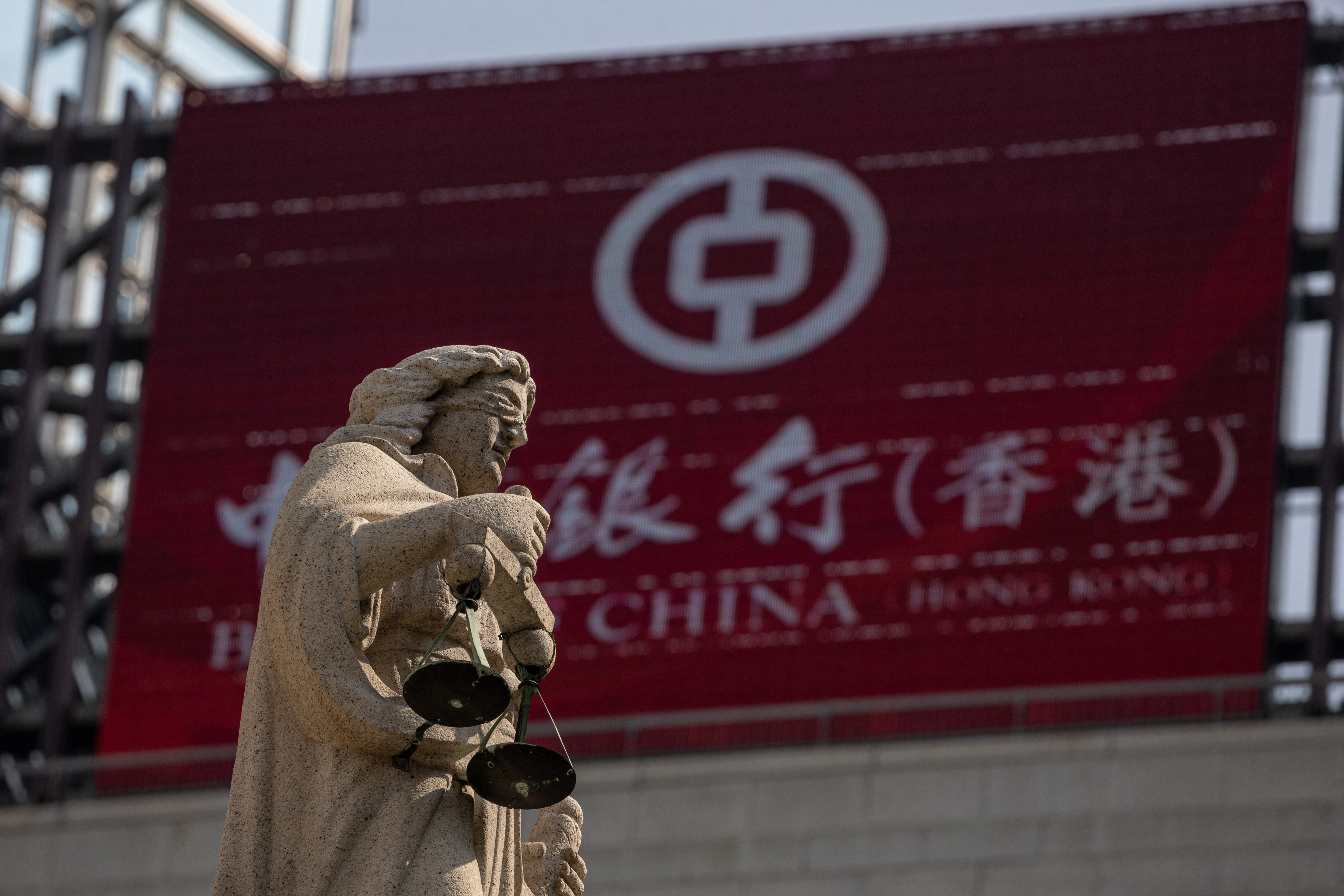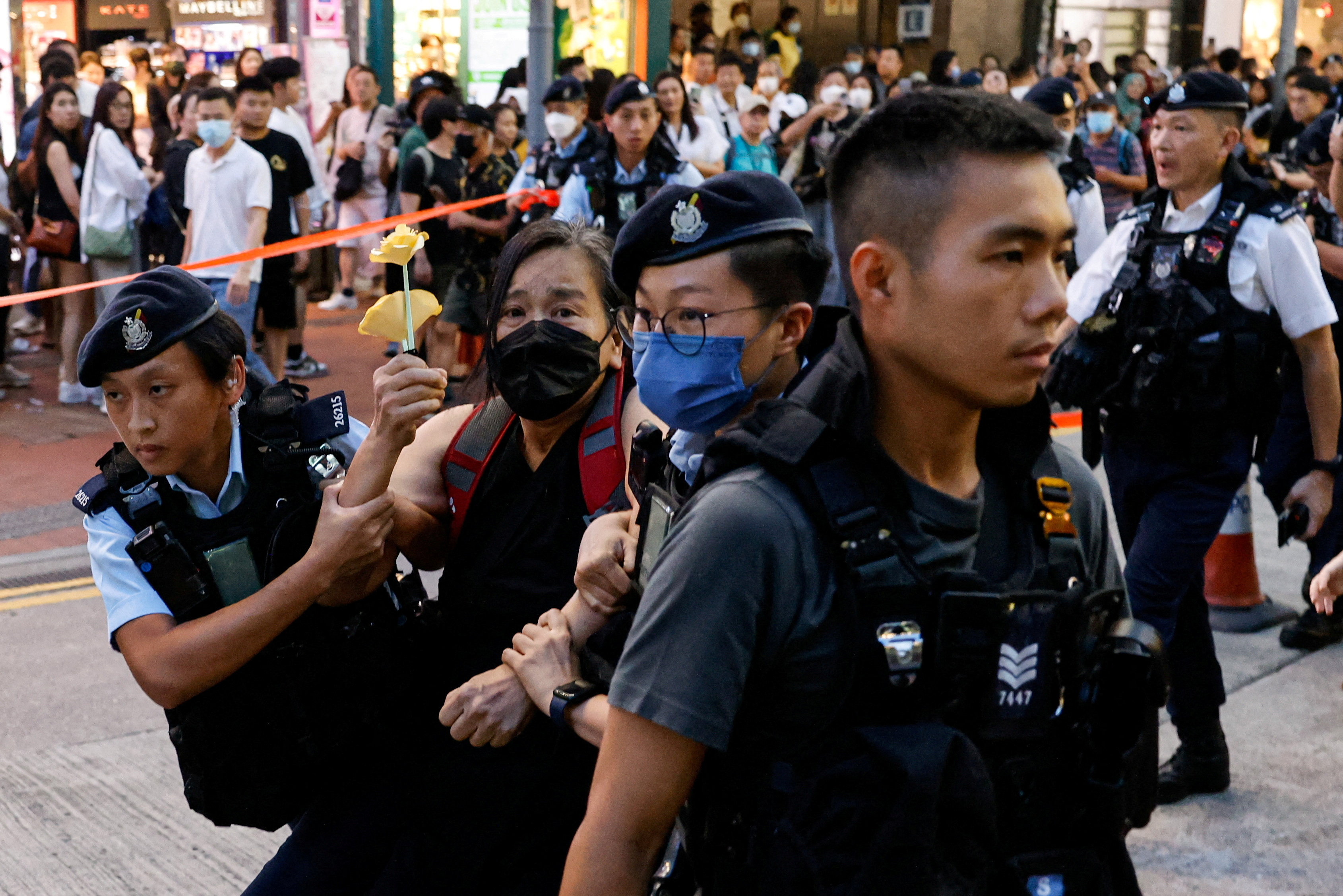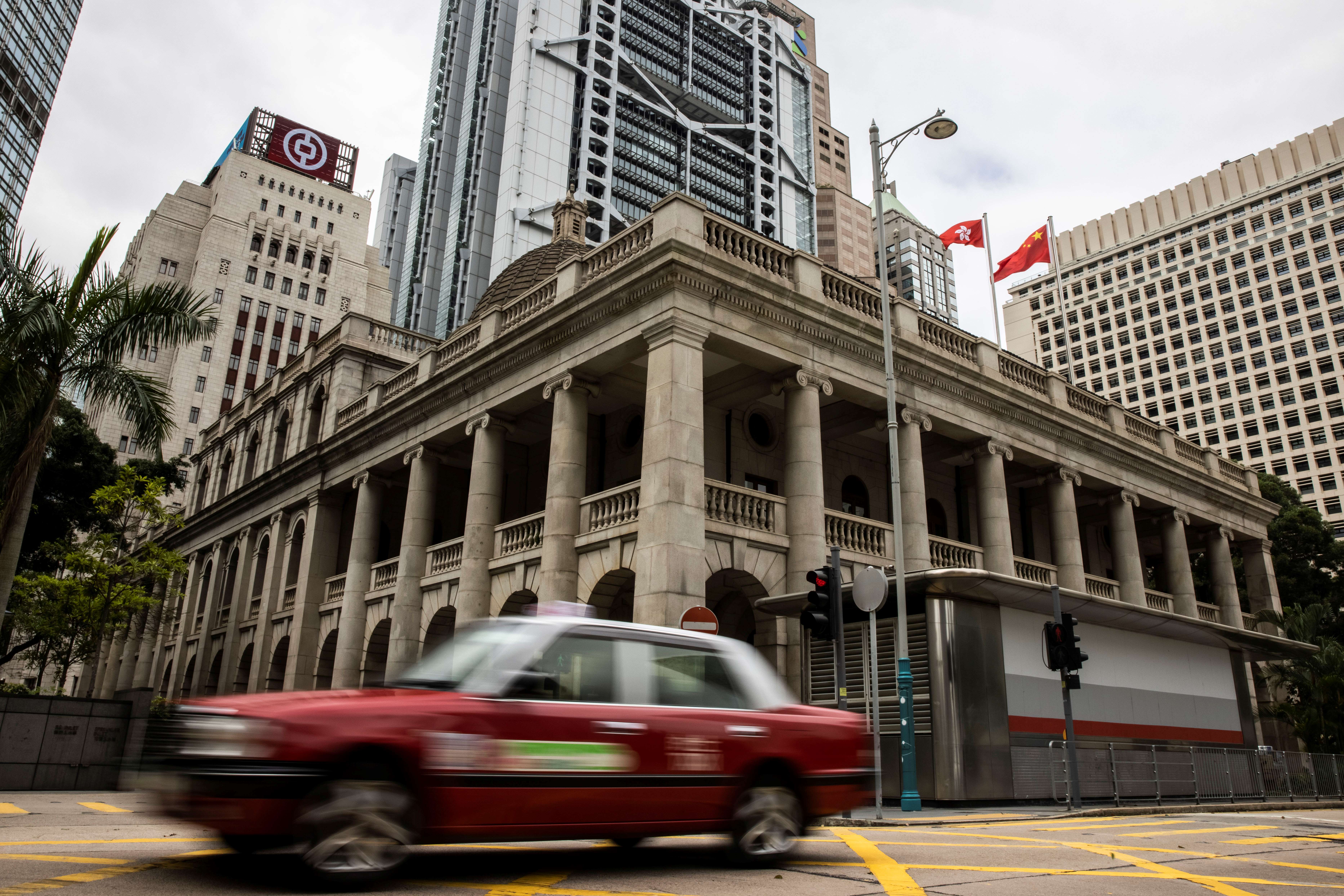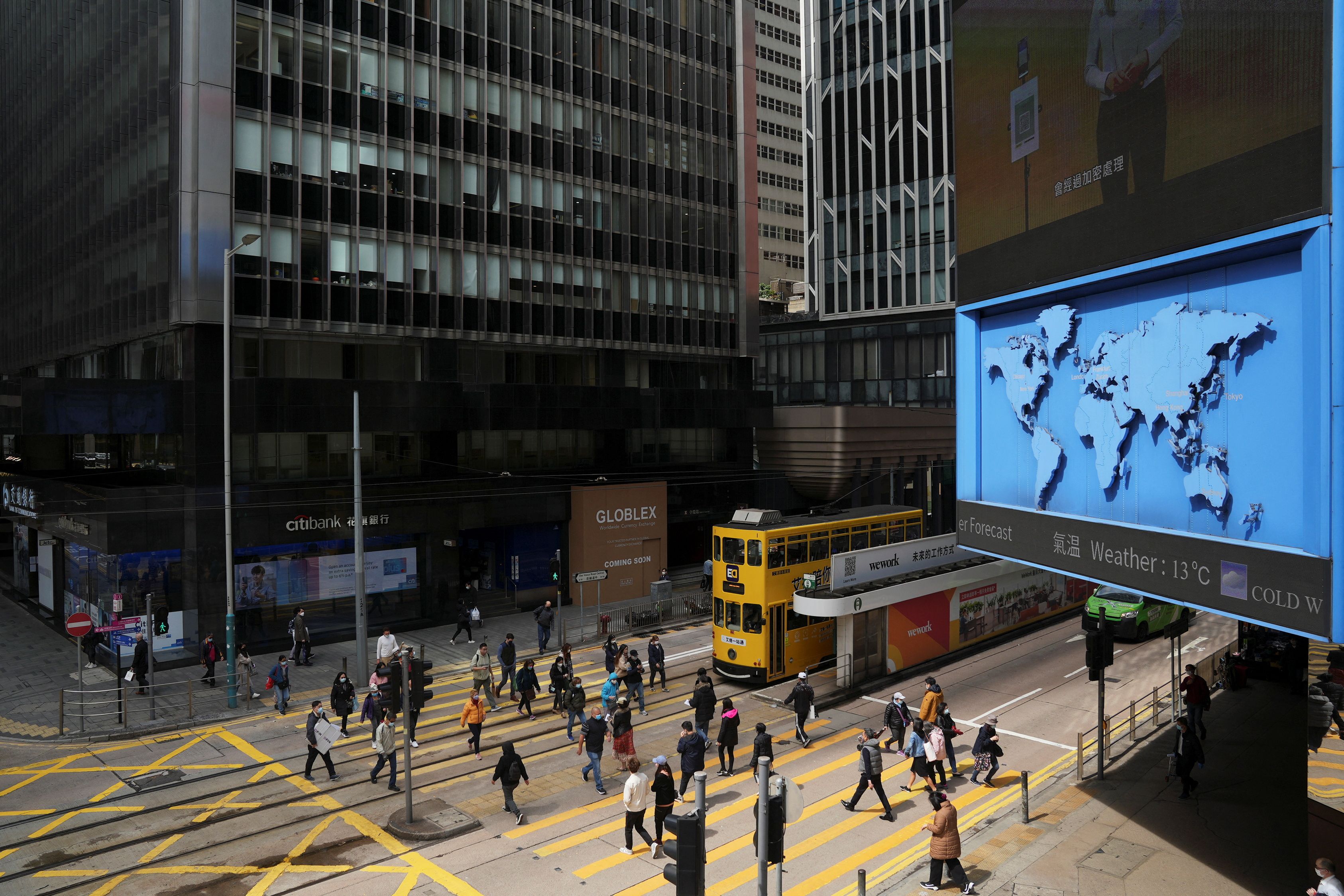
Taipei, Taiwan – For decades, Hong Kong has advertised the rule of law as the cornerstone of the city’s success as an international business hub.
These days, though, the Hong Kong government often appears unwilling or unable to explain what the law actually is.
In the run-up to the June 4 anniversary of the 1989 Tiananmen Square crackdown, Hong Kong officials were repeatedly asked by journalists if commemorating the event would be a crime under a Beijing-decreed national security law (NSL) imposed in the wake of mass protests in 2019.
On each occasion, the officials, including Hong Kong Chief Executive John Lee, refused to give a direct answer.
“Everybody should act in accordance with the law and think of what they do, so as to be ready to face the consequences,” Lee said in response to reporters’ questions at a regular press briefing last month.
When asked this week to explain why dozens of Hong Kongers had been detained after peacefully marking the anniversary on Sunday, Lee said only that everyone “must act in accordance with the law” and that the “law is already very well clearly stated”.
The Hong Kong government did not respond to a request for comment before publication.
For more than two decades after Hong Kong’s return to Chinese sovereignty, the June 4 commemorations, including a candlelight vigil in the city’s Victoria Park, served as a marker of the freedoms guaranteed under an arrangement known as “one country, two systems”.
But since the passage of the NSL in 2020, commemorations of the crackdown, during which the People’s Liberation Army brought a violent end to months of student-led protests, have fallen silent.
After citing Covid-19 restrictions to prohibit the annual vigil in 2020 and 2021, authorities this year approved the use of the park for a pro-Beijing carnival instead and deployed some 6,000 police around the city to prevent unauthorised gatherings.
Authorities on Sunday arrested 24 Hong Kongers for “breaching the public peace”, including people apparently targeted for holding a candle or bouquet of flowers, and impounded a car with the license plate “US8964”, the date of the Tiananmen crackdown.

The Hong Kong government’s caginess about the legal status of the June 4 commemorations reflects an overall atmosphere of legal uncertainty that has descended on the territory under the NSL, which established the vaguely-defined offences of secession, subversion, terrorism and collusion with foreign forces.
Eric Lai, a non-resident fellow at Georgetown Center for Asian Law, said Hong Kong officials’ refusal to provide clarity about the law was by design.
“The more ambiguous the red lines, the greater efficiency for the authorities to control the society, or to use the government terms, to regulate the ‘soft resistance’,” Lai told Al Jazeera.
“The examples can be found on the day of June 4 when the authorities used preventive detention to hinder individuals from engaging in public actions, without any legal grounds.”
The legal ambiguity has raised concerns among Hong Kong’s foreign business community, who have long pointed to the British-inherited legal system as a key consideration in choosing the city as a corporate base over other Asian metropolises.
In a survey carried out by the American Chamber of Commerce earlier this year, 35 percent of participants said they believed the rule of law had “worsened” in Hong Kong and 19 percent said they thought it had “worsened a lot”. A further 40 percent said they had been impacted by the NSL, primarily through the departure of Hong Kong staff or decisions over Hong Kong as a future corporate headquarters.
Some 19 percent of respondents said they were very confident in the rule of law, and 44 percent moderately confident. Another 27 percent, however, said they were either not confident or “not confident at all”.
Lai said business confidence in Hong Kong may further erode if the former British colony loses the characteristics that distinguish it from the Chinese mainland, where legal processes are opaque and subordinate to the ruling communist party.
“This [feeling] would worsen when the government continues to arbitrarily use laws and courts to achieve political goals, and when the courts have less ability to impose constraints over government action that would eventually impact business activities in Hong Kong,” Lai said.

Hong Kong’s legal community is increasingly uneasy, with the political environment impacting future career decisions by lawyers, even those specialising in non-political commercial and business law, said Kevin Yam, a former Hong Kong solicitor and activist who is now based in Australia.
“It’s having a downstream impact even though the [judges] who hear the commercial cases aren’t the same ones who hear NSL or process cases,” Yam told Al Jazeera.
“It’s not as simplistic as saying the NSL is there, therefore business confidence is down. Its impact is about two steps removed, but in some ways, the impact is even more insidious and under the radar.”
Similarly, Hong Kong’s legal atmosphere may impact long-term decisions by businesses, such as whether to renew a lengthy commercial lease or replace departing employees with new hires, Yam said.
Regional headquarters for foreign companies in Hong Kong dropped from 1,541 in 2019 to 1,411 in 2022, according to the Statistics Census Department, although some of that decline may also be attributable to the city’s since-abandoned pandemic-related border controls, which lasted far longer than elsewhere.

Nearly 60,000 staff positions were lost over the same period, while a record 13 million square feet of office space is currently empty in the city, including some of its swankiest spaces typically reserved for multinationals.
“This stuff that’s going on behind the scenes is drip, drip, drip slowly, eating away, and it feeds a vicious cycle,” Yam said.
Charles Mok, a former Hong Kong legislator who represented the IT sector, said that some companies may remain in Hong Kong but approach doing business more like they do in mainland China, which has traditionally been a much more volatile business environment.
“At this point, clearly many foreign businesses are evaluating the risks in Hong Kong and China, hence the talk about de-risking and so on. But it is also true many businesses would cling on to a profitable market until they no longer can,” Mok told Al Jazeera.
“The lack of clarity is hurting businesses in Hong Kong, but in the end, the thinking may be, if these foreign businesses can live with such operating conditions in China, why can’t they do the same in Hong Kong?
“You may think this is a degradation, but the Hong Kong authorities may think that this is elevating Hong Kong to the same level as the rising motherland.”
The Hong Kong government did not reply by publication time but in a statement emailed on the night of June 9 said it would “continue to resolutely carry out its duties and obligations to safeguard national security and at the same time protect the rights and freedoms that Hong Kong resident enjoy.”
The government said “so long as people strictly observe the laws in Hong Kong, including the National Security Law, they will not unwittingly violate the law” but did not respond to specific queries from Al Jazeera about what kinds of protest activities are now illegal.







